“Tokyo turned out to be completely different from what I imagined it to be. I have long been convinced that one should go to a new country without any expectations and take everything “as is”. But with Tokyo, it turned out to be unrealistic. For the life of me, I imagined pictures of the city of the future from the movie "The Fifth Element" with flying trains, crazy skyscrapers and all sorts of miracles.
In reality, it turned out that Tokyo is an ordinary Asian city. The myth of the city of the future arose during the Tokyo Olympics in 1964: then it was true. And today there are high-speed trains and multi-level flyovers in many cities. In my opinion, the title of the city of the future today is more suitable for Singapore or Hong Kong,” says Sergey Dolya.
(Total 45 photos)
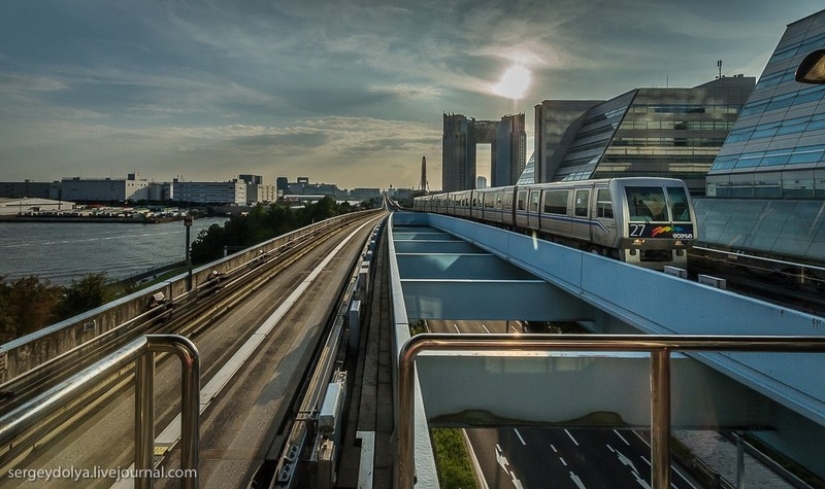 Source: JJournal / sergeydolya
Source: JJournal / sergeydolya
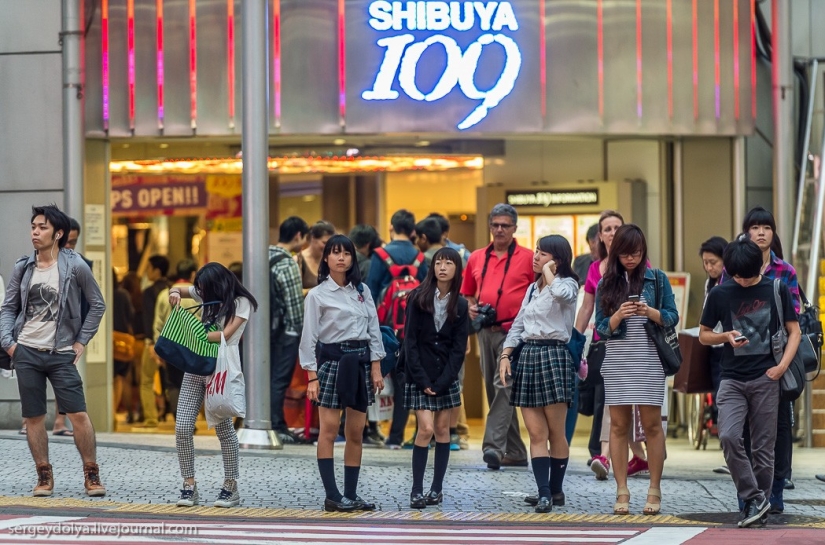
1. Nevertheless, there are many interesting things in Tokyo and I have no doubt that I will return to Japan again ...
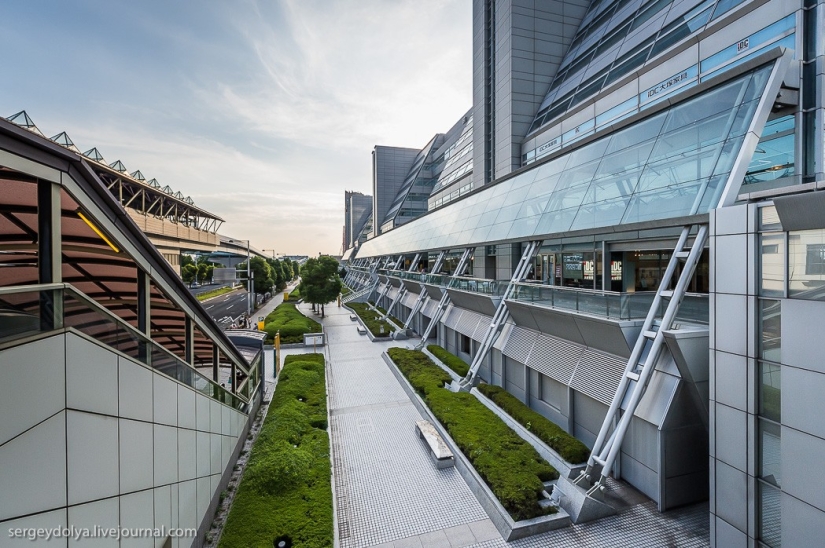
2. We lived on the artificial island of Odaiba. I must say, the urban space on the island is very different from what traditional Tokyo looks like. While on the "mainland" the maximum density of people and concrete, alleys and parks meet here.
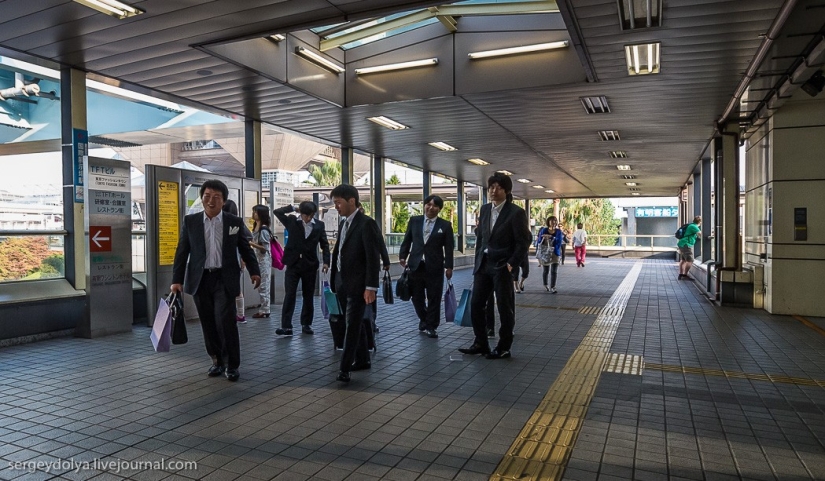
3. There is a monorail to the center of Tokyo. The Japanese are very funny: for work and official meetings they dress all as one in the same suits, and in their free time they are discharged in all sorts of things.
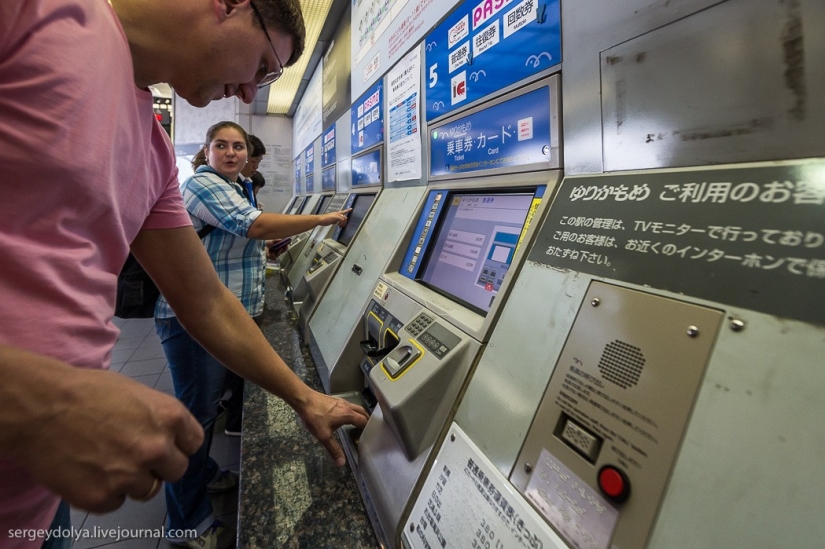
4. Buying monorail tickets is fully automated.
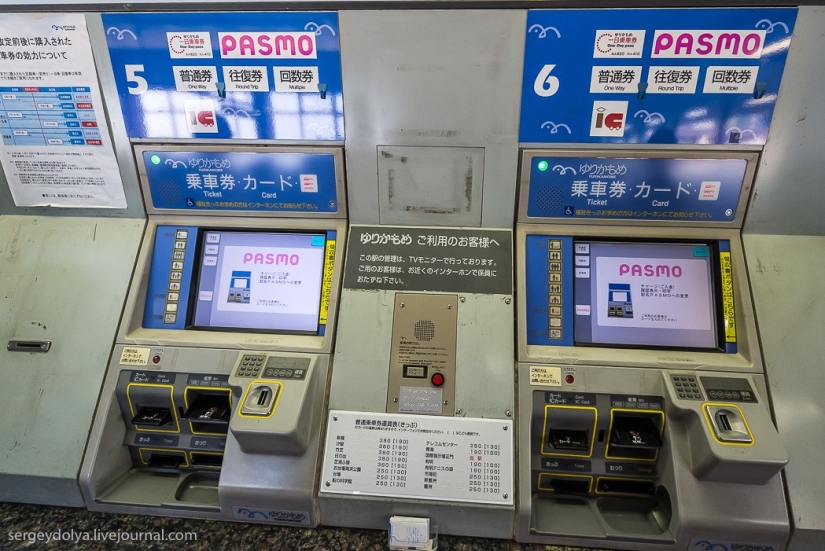
5. You can pay in change, cash or card.
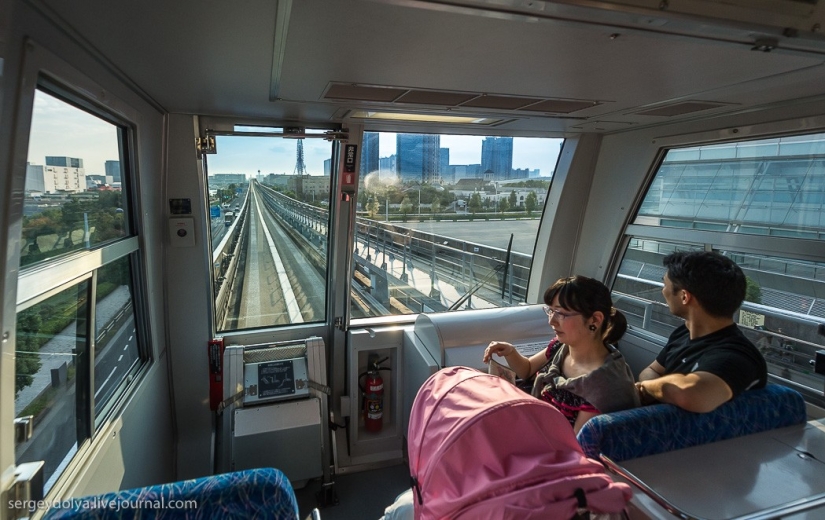
6. The monorail is controlled automatically, there are no drivers in the head of the train.
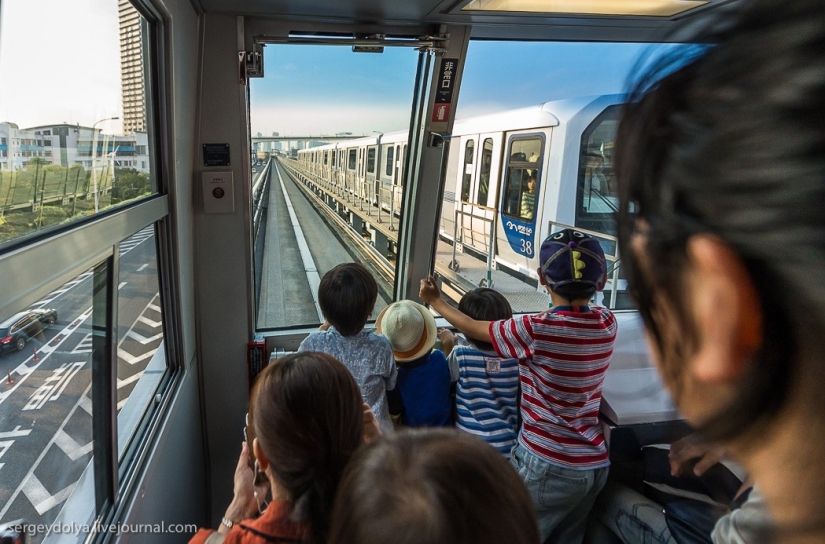
7. He noted that everyone was eager to get into the first car and were so enthusiastic about the “miracle train”, as if they were not Tokyo residents of the city of the future, but Kostroma or Rostov residents. That was the first time I had the suspicion that something was wrong. It is strange to see such surprise: 20 years ago I rode such a train in London, and today unmanned trains run at many airports in the world.
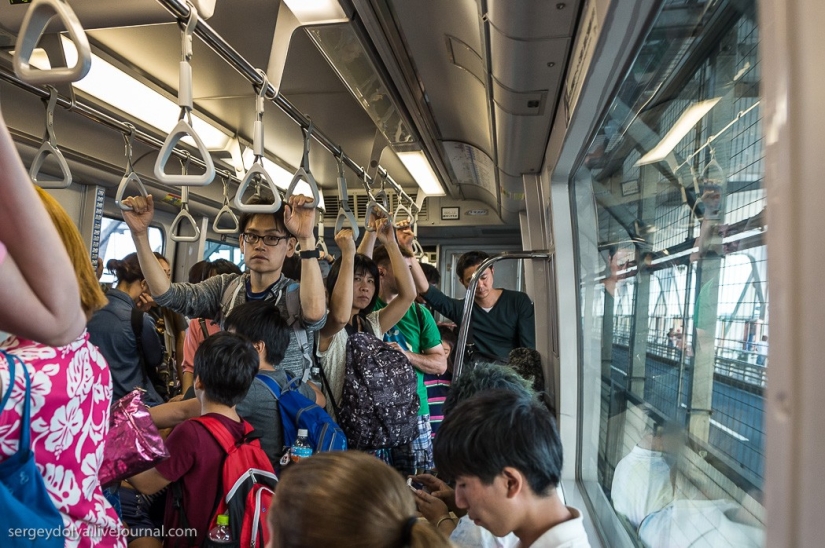
8. In public transport (metro or monorail), special people work at rush hour to push passengers into the cars. There are also separate carriages for men and women so that passengers do not experience gender discomfort during the flea market.
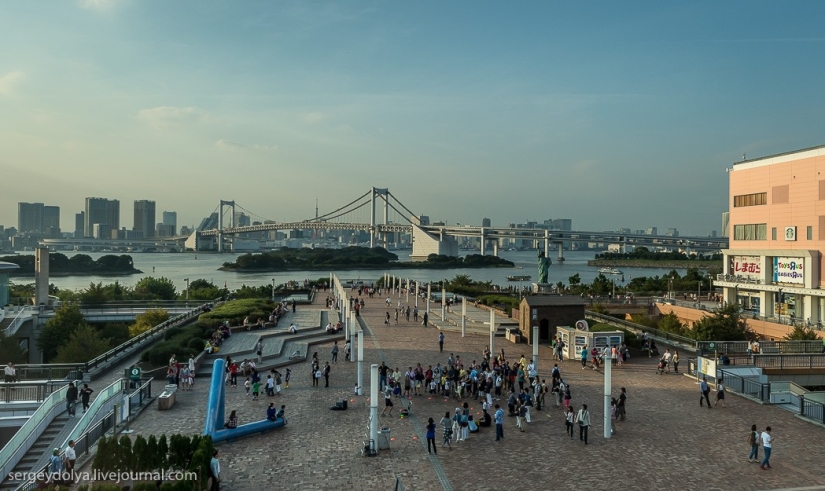
9. In the background is a visiting card of Tokyo, the Rainbow Bridge. It connects Tokyo and Odaiba. In addition to the highway, highway and monorail, there is a free footpath on the bridge. And in front of the bridge, if you look closely, you can see a copy of the Statue of Liberty. This sculpture appeared during the Year of France in Japan and was so loved by Tokyo residents that it was returned to the island after being dismantled.
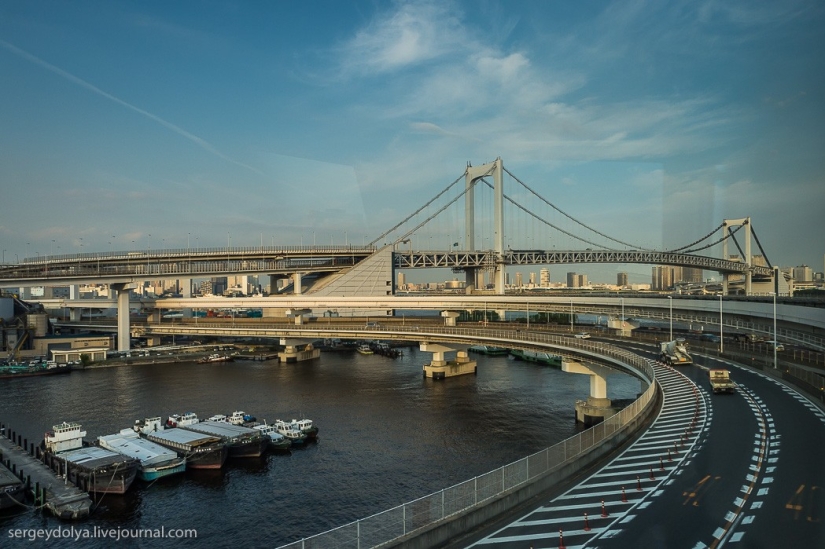
10. The Rainbow Bridge was built in 5 years and opened in 1993. Its length is 570 meters.
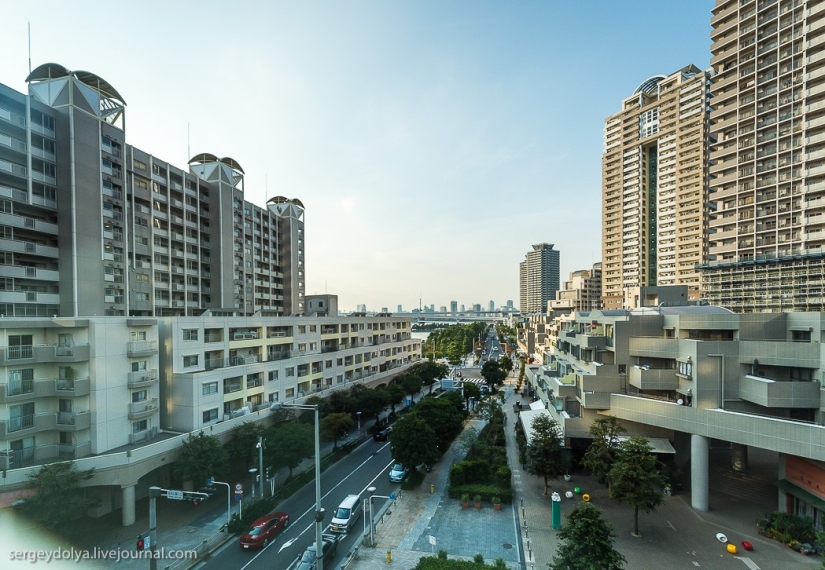
11. This is probably what most of the views of Tokyo look like. There are few skyscrapers, mostly medium-sized buildings of 20-30 floors.
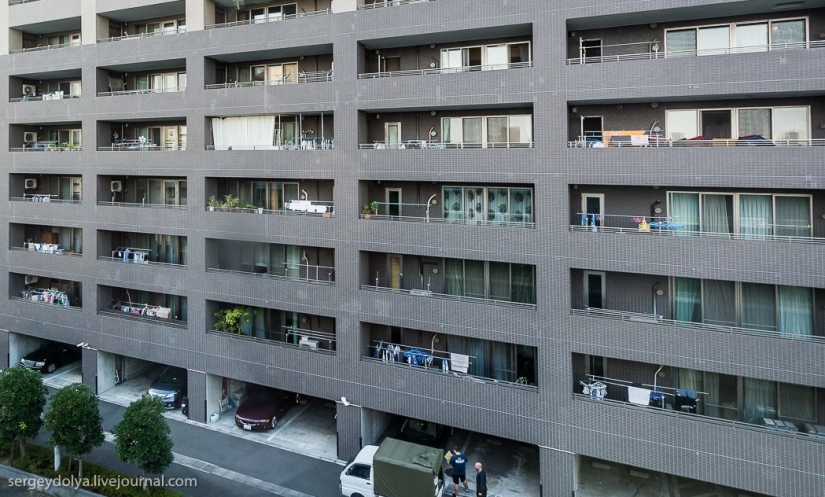
12. All balconies are hung with linen. For some reason, the Japanese do not like dryers and use this old-fashioned way.
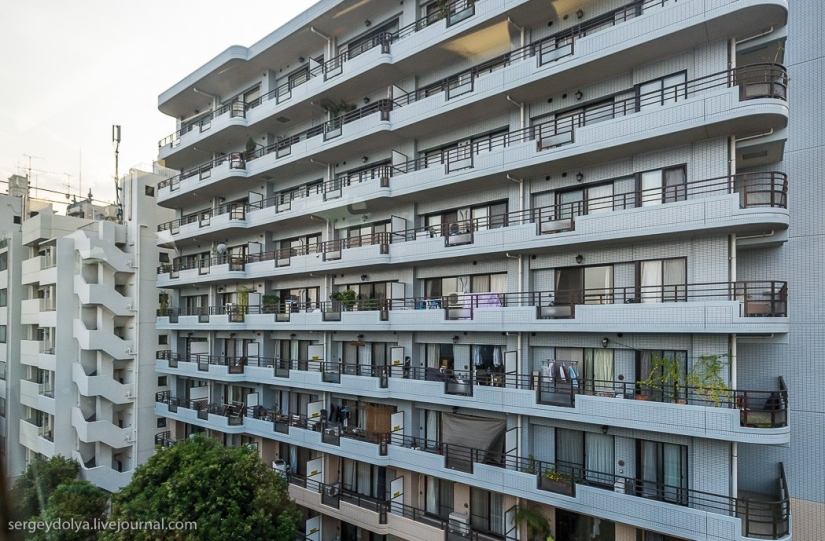
13. In some houses in the center with a particularly beautiful facade, the landlord may prohibit drying clothes on the balcony.
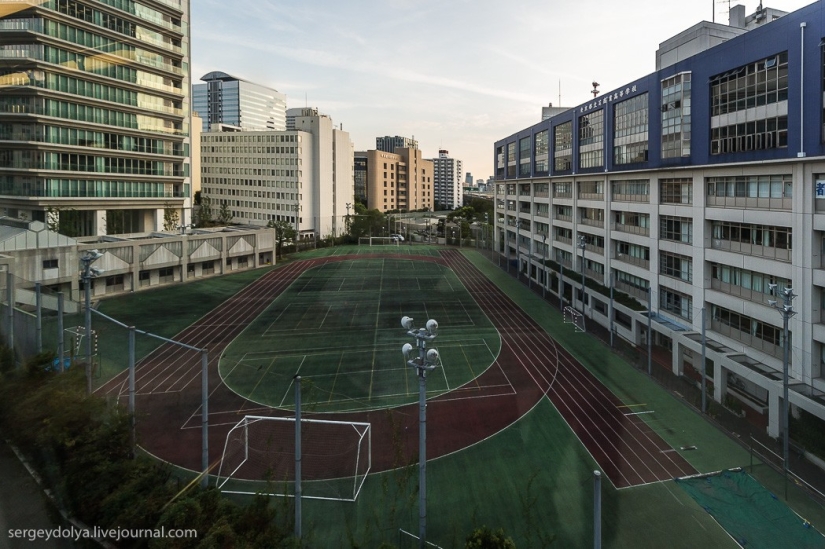
14. The stadium is literally sandwiched between houses.
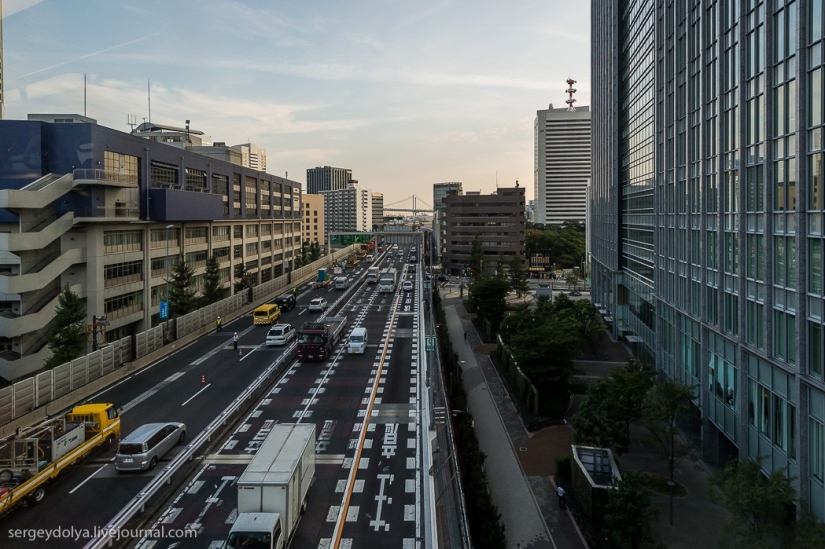
15. Approaching the center of Tokyo.
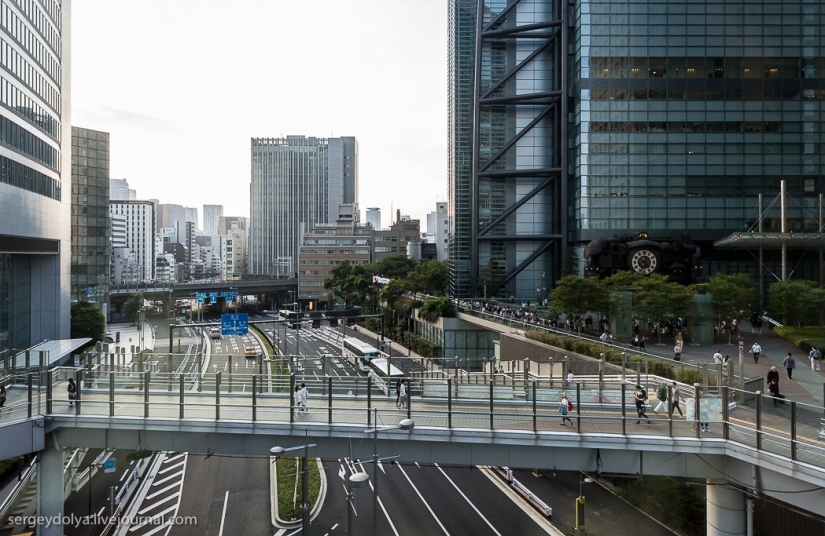
16. Houses begin to grow skyward.
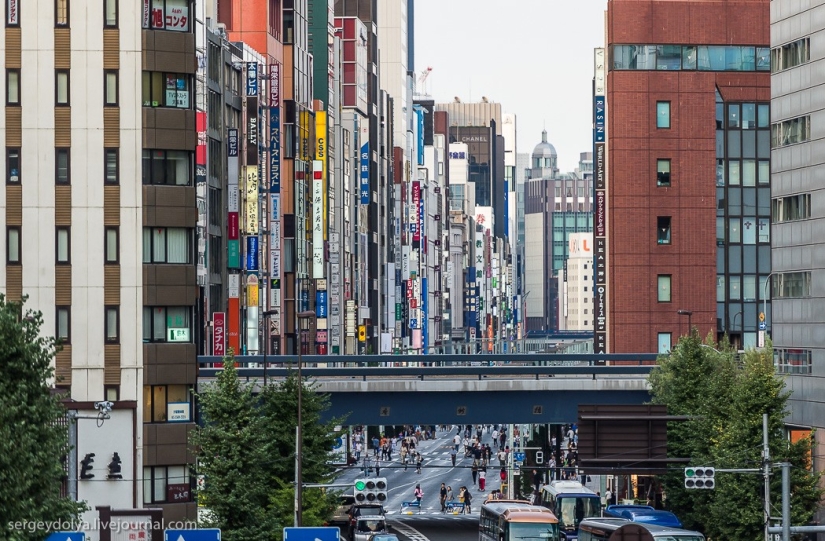
17. Ginza is a fashionable area of Tokyo with countless boutiques, cool department stores, restaurants and cafes. By the way, the first Apple store outside the United States is located here.
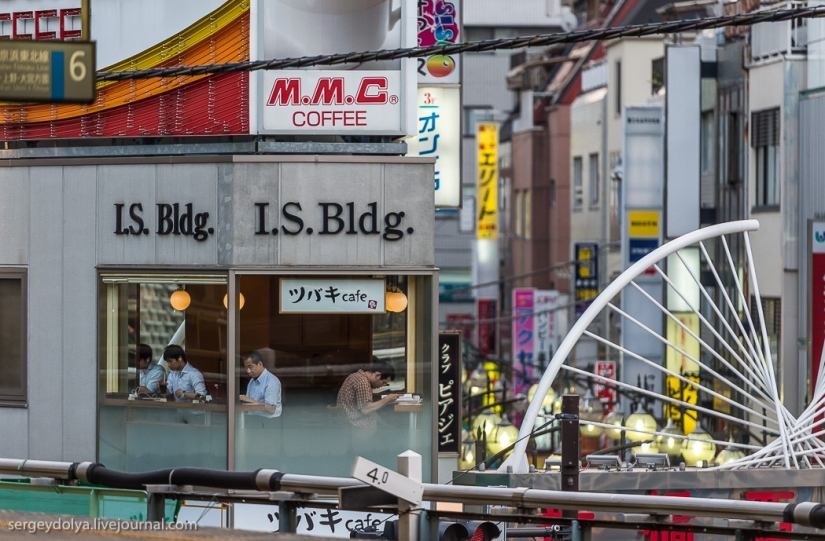
18.
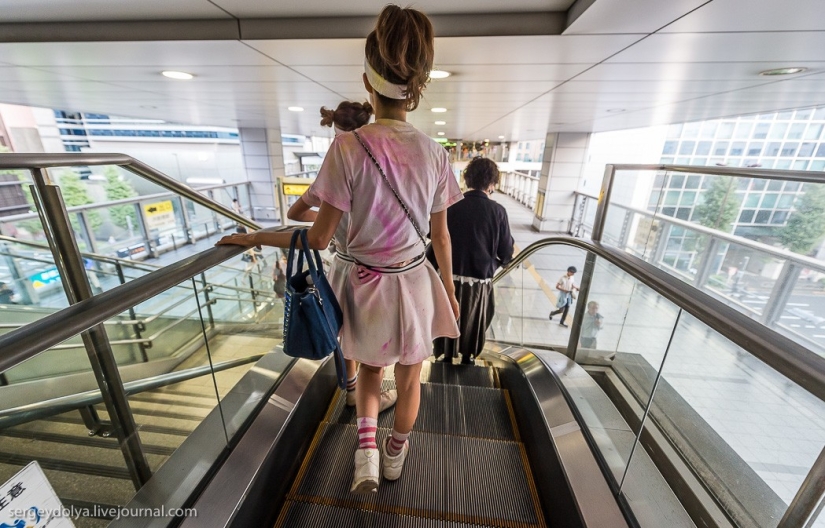
19. Exit from the monorail.
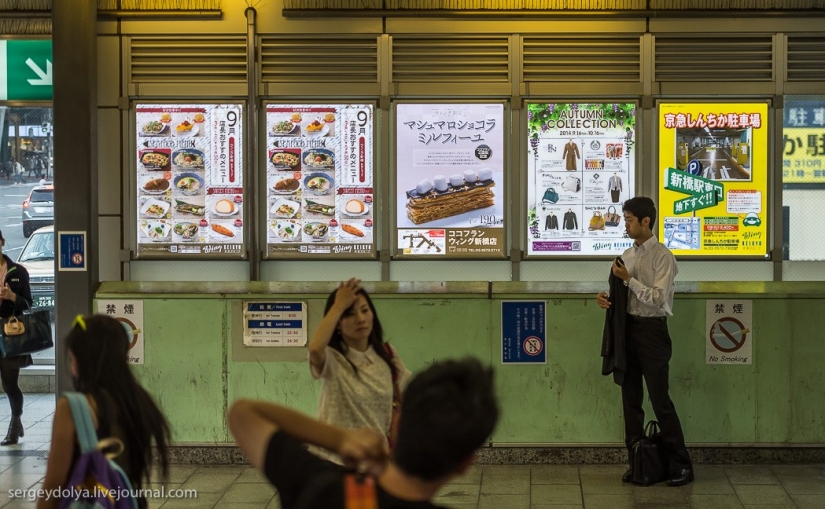
20.
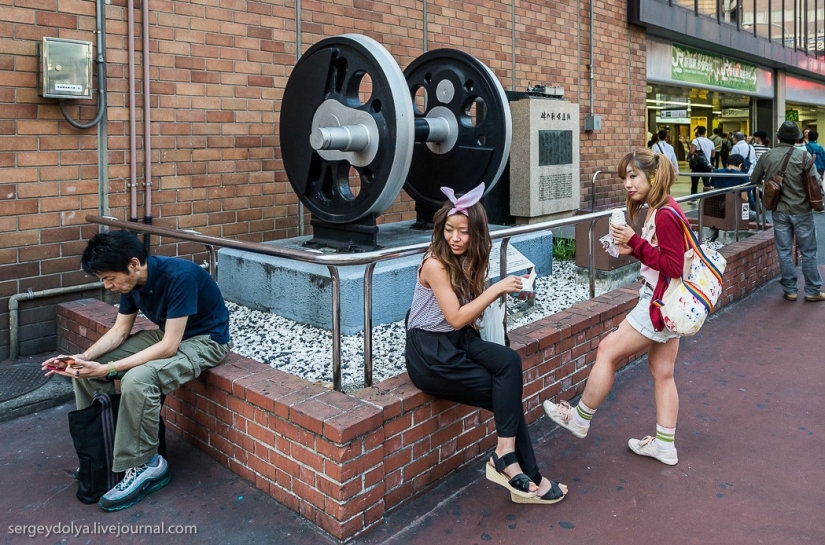
21. Under the guise of photographing a memorial sculpture, of course, I took pictures of girls and their outfits. Later I was told that there is a law against filming people without their knowledge. That is, you can shoot if they see you (and understand that you are filming), but you can’t spy. However, foreigners are loved in Japan, and I was simply gently informed that this is not accepted here. In any case, the girls saw me and did not mind.
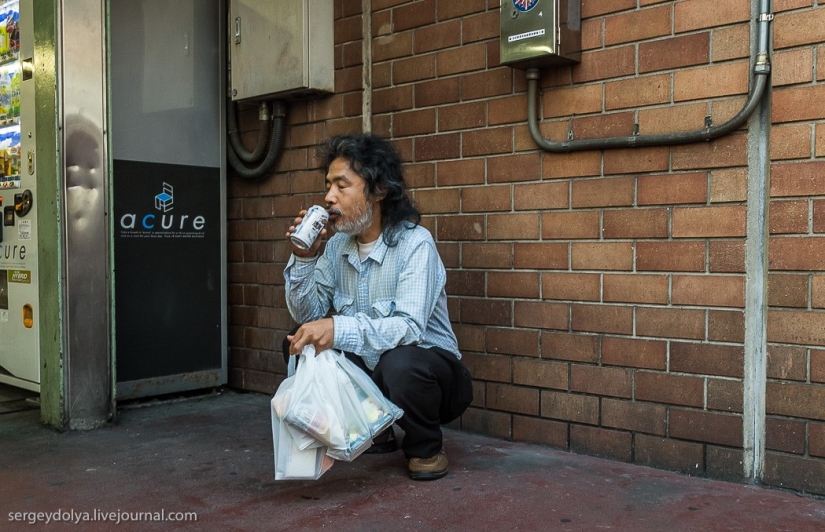
22. Dude sat down on the courts to drink beer.
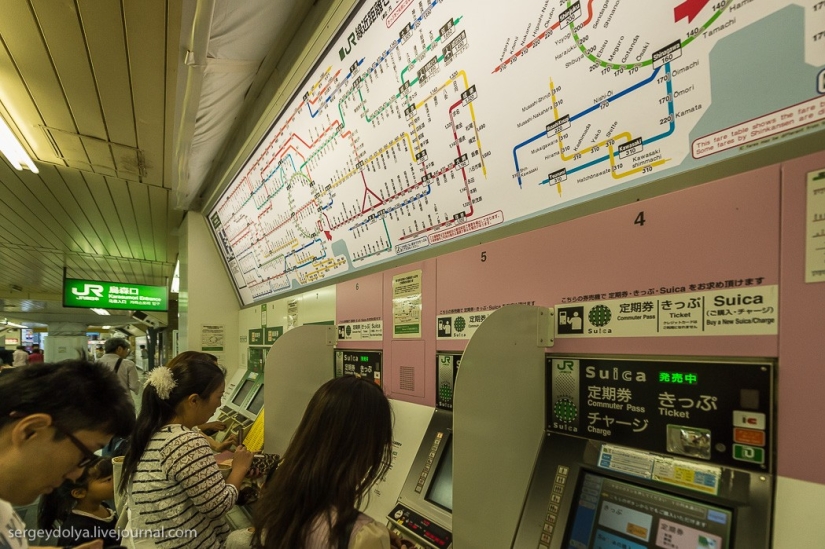
23. In search of the famous Shibuya Crossing went down to the subway.
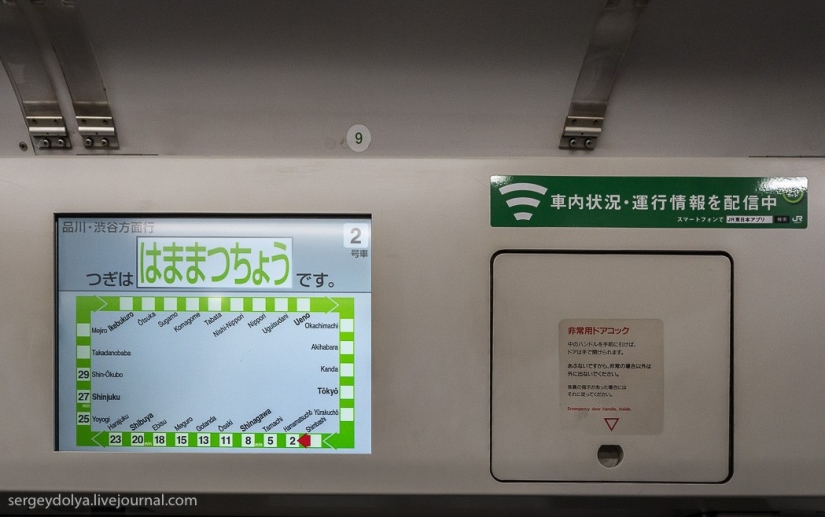
24. The fare on the Tokyo subway depends on the distance. In the diagram, the red arrow shows our location, and then the travel time to the desired station.
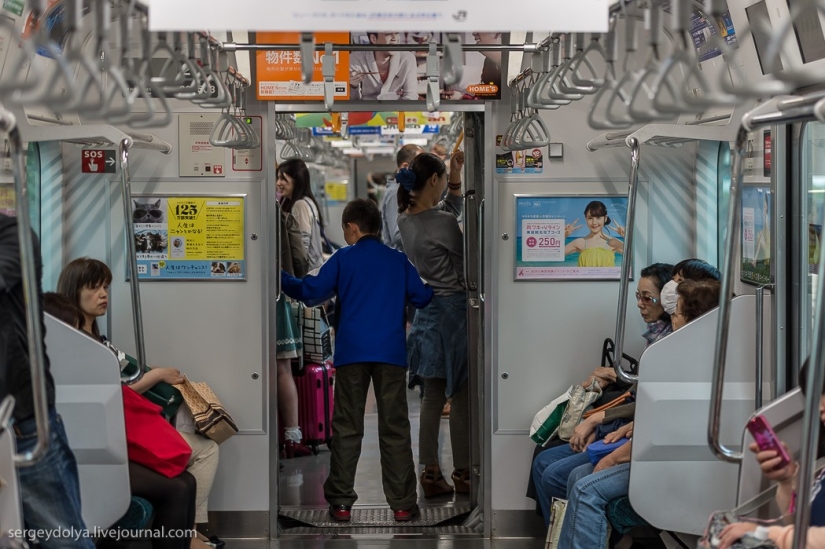
25. Inside the car. You can move from one to another.
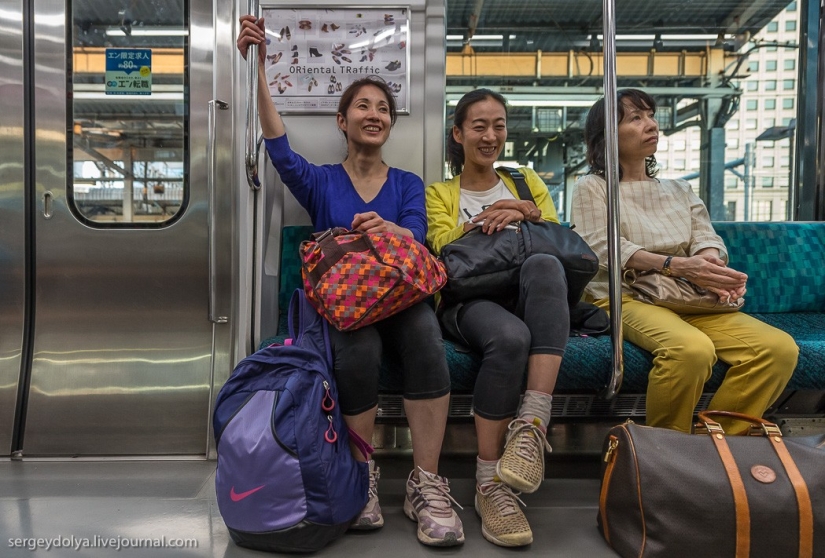
26.
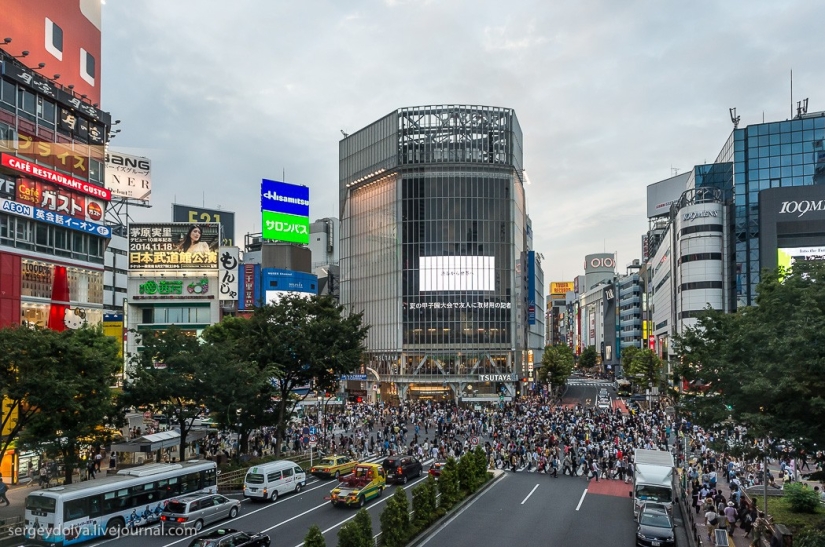
27. Shibuya is the most famous intersection in Japan. This type of intersection is called a "scrambler". On it, traffic stops simultaneously from all sides, and pedestrians cross it in any direction.
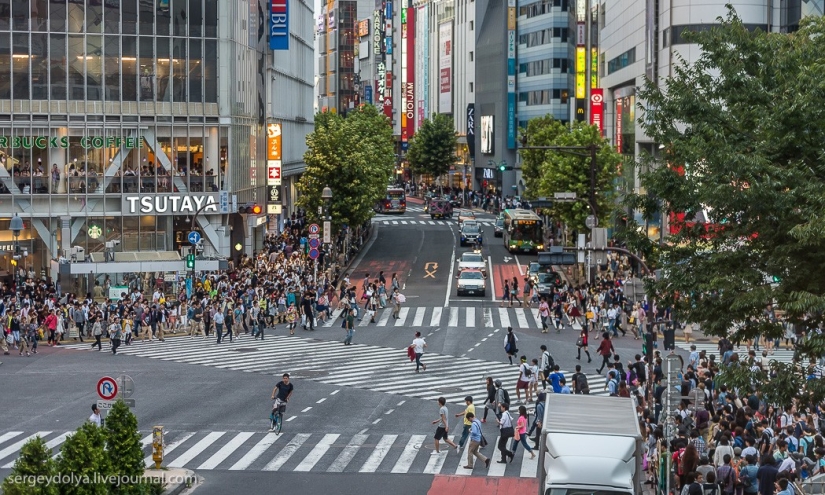
28. As soon as the red light for cars lights up, the first pedestrians pour out onto the road.
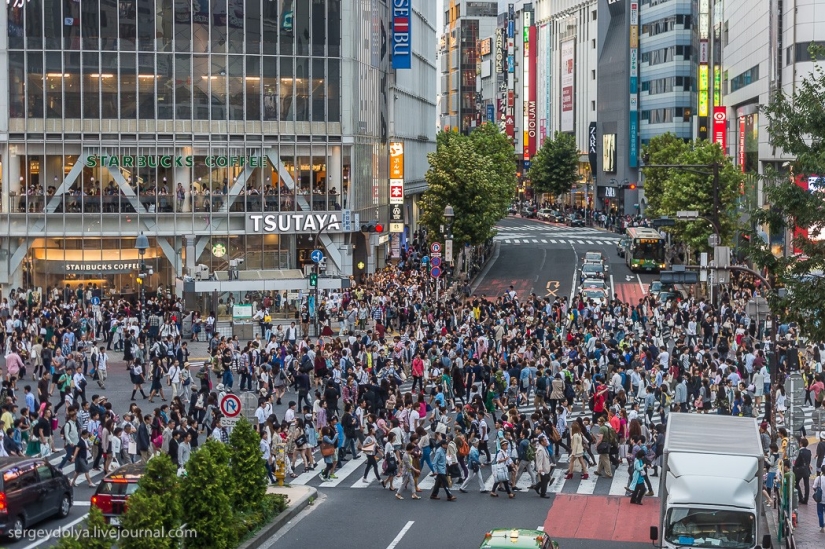
29. And after five seconds it turns into a motley mess.
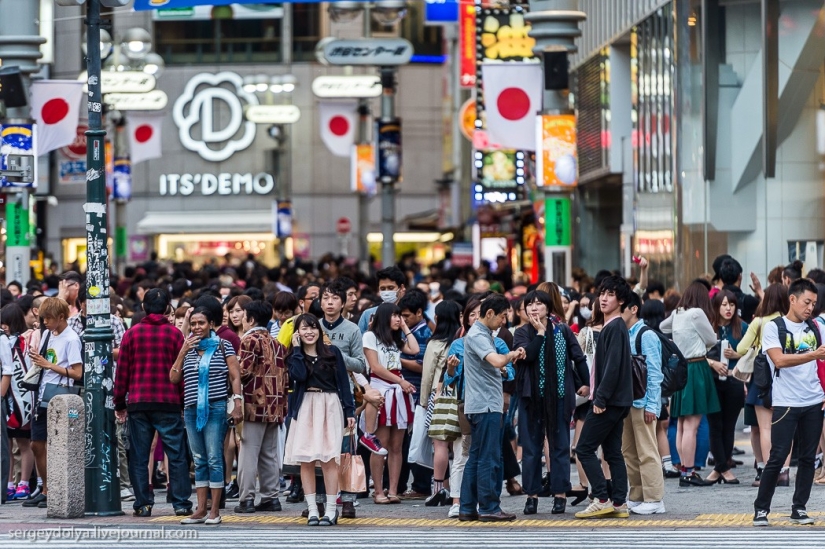
thirty.
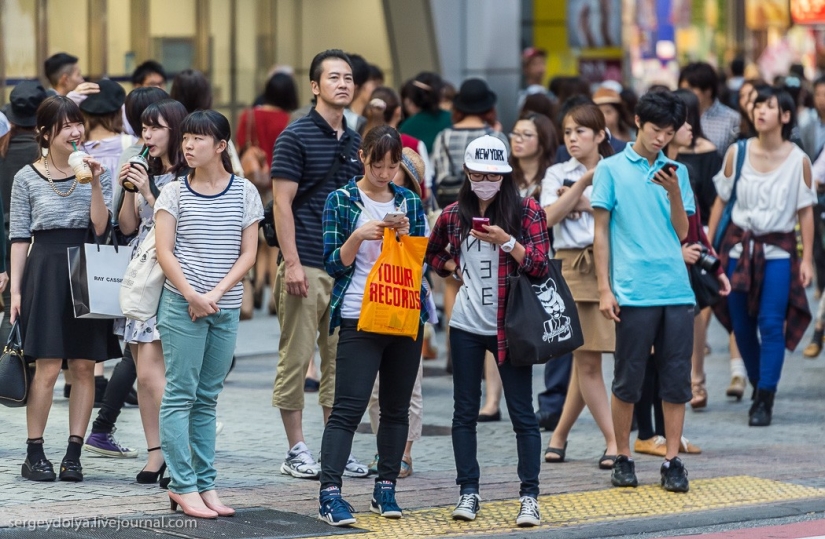
31.
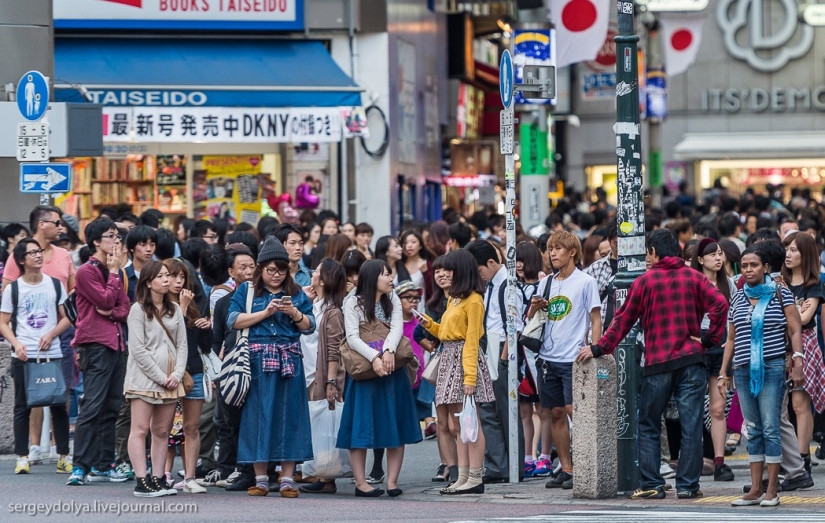
32.
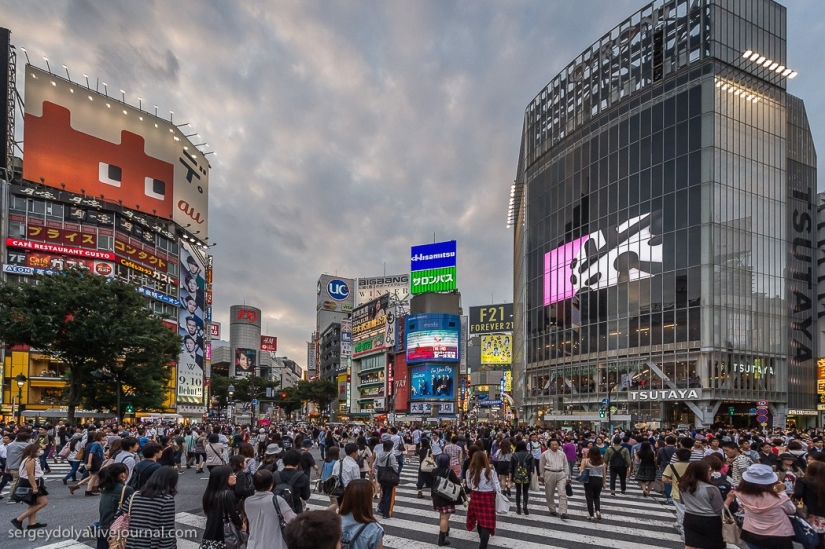
33. Shibuya - Japanese Times Square or Piccadilly Circus.
Evening time-lapse of the intersection.
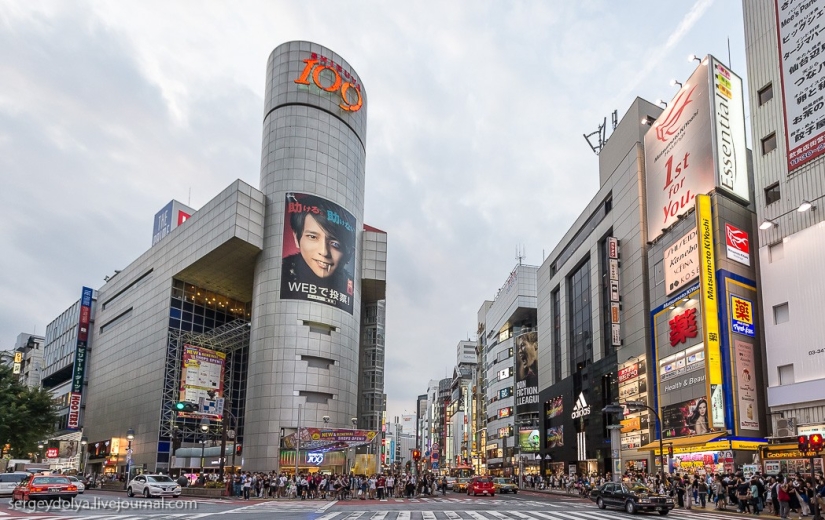
34. "Shibuya 109" - the coolest fashion store with boutiques of Japanese fashion designers.
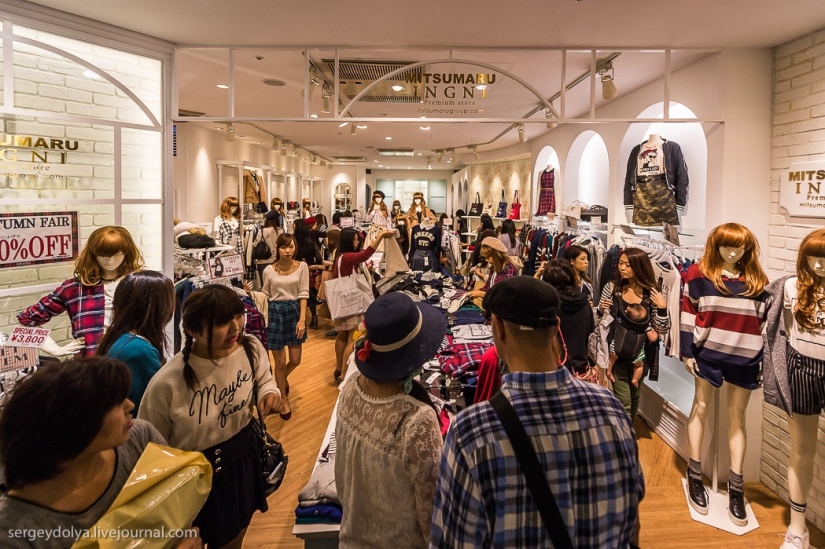
35. If you ask a girl from the Japanese provinces where she would like to be for the first time in Tokyo, she will name this address.
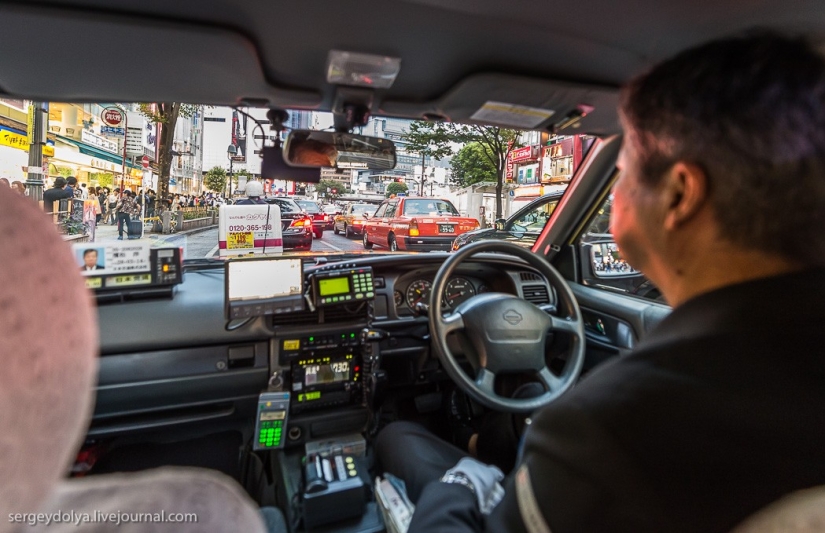
36. At the crossroads, it seemed to me that the houses were not high enough, and I asked the guide if there were higher houses in Tokyo. As a result, we went to the area of skyscrapers by taxi.
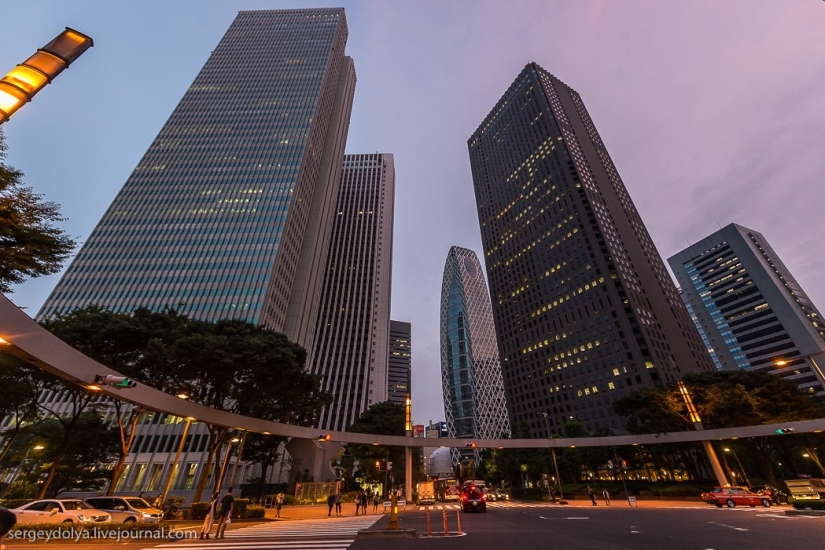
37. Shinjuku is the main administrative and commercial center of Tokyo. This is where the Tokyo skyscrapers are located. We were on a Sunday evening, when it was empty and there were no people around.
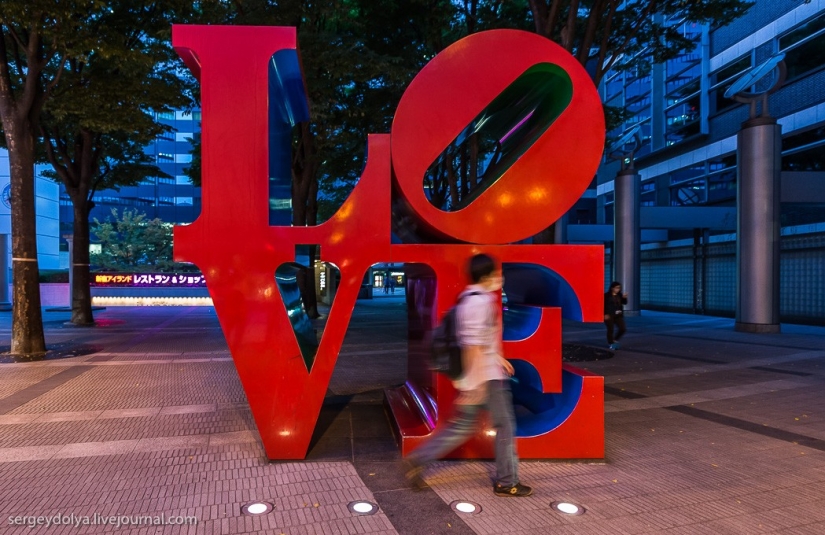
38. Sculpture LOVE. I saw the same in New York and in some other city.
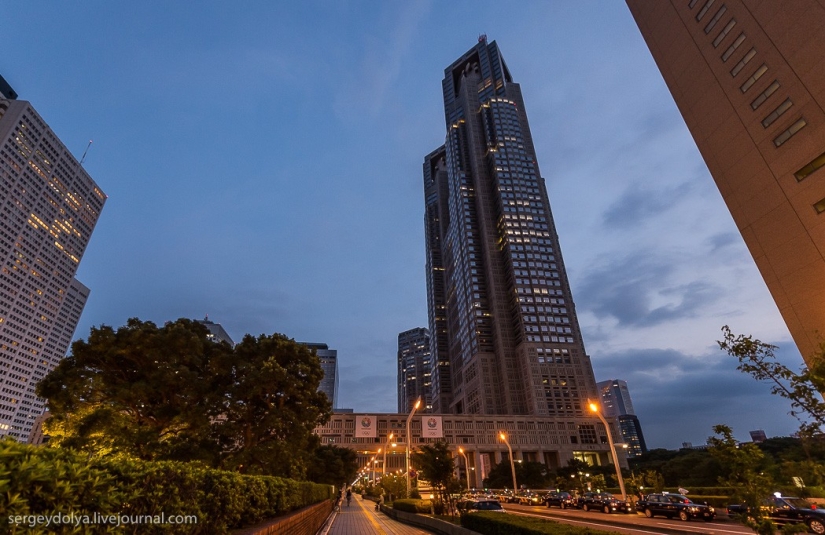
39. One of the skyscrapers is the city hall building. You can climb it for free.
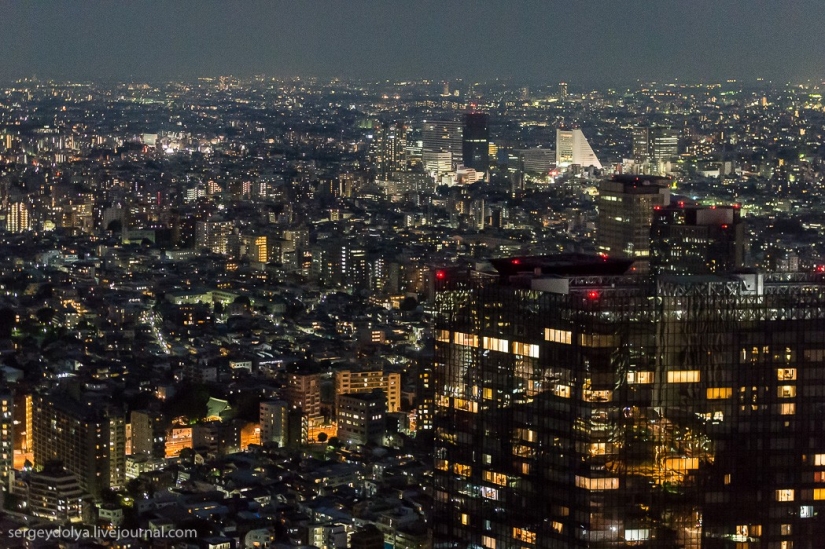
40. True, there are no open areas on the roof, and you have to shoot through the glass.
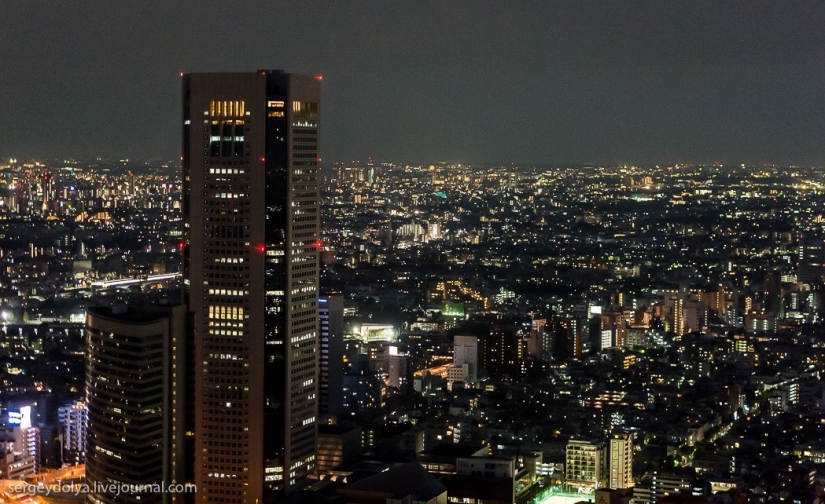
41.
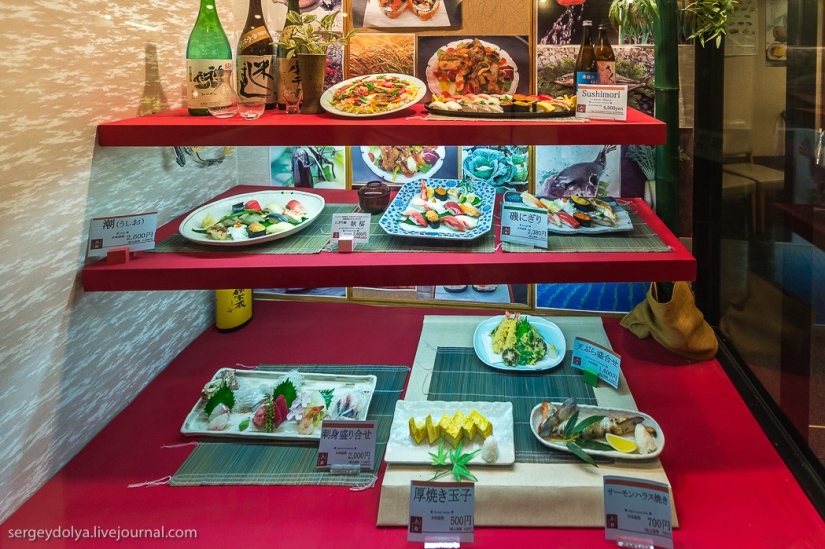
42. There is a Japanese restaurant in a nearby skyscraper, where we went. At the entrance there is a showcase of plastic sushi and rolls, which I already talked about in a post about the market.
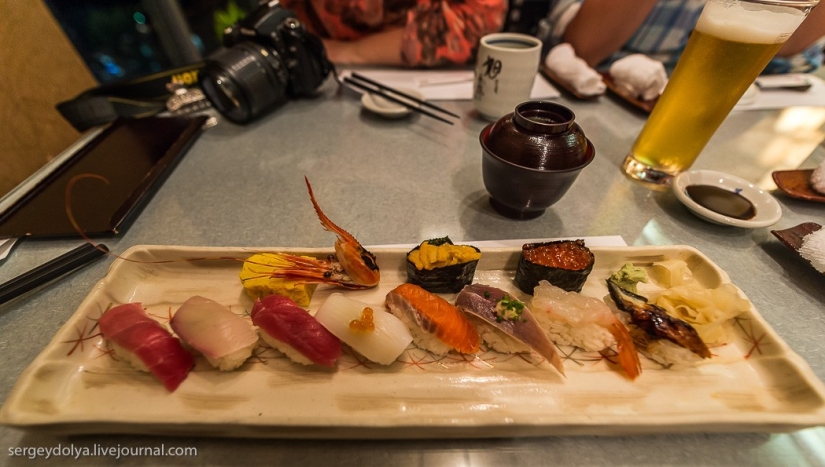
43. I ordered all sorts of varieties for testing and, I confess, I did not notice a fundamental difference between the original Japanese and our Moscow ones.
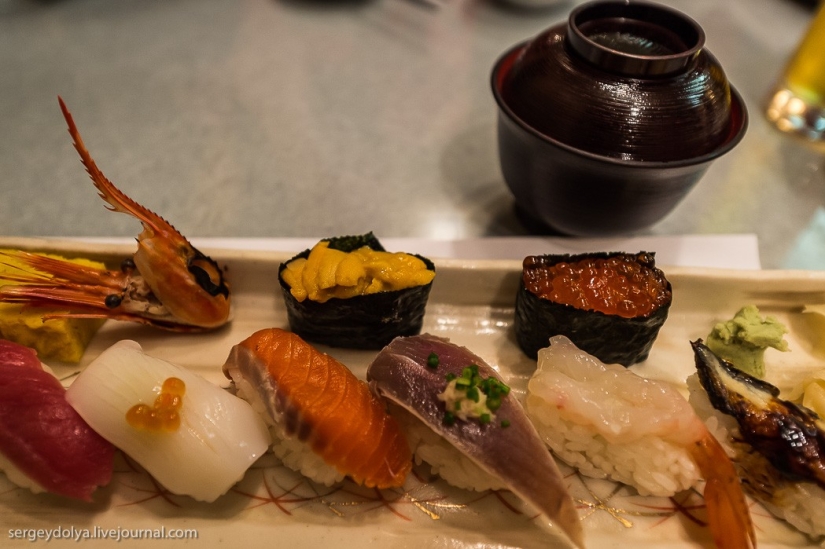
44. Well, except that more fish and less rice is the only difference. Our guide said that the Russian way of "drowning" each sushi in soy sauce is puzzling to the Japanese. According to him, it kills all the flavor of the fish.
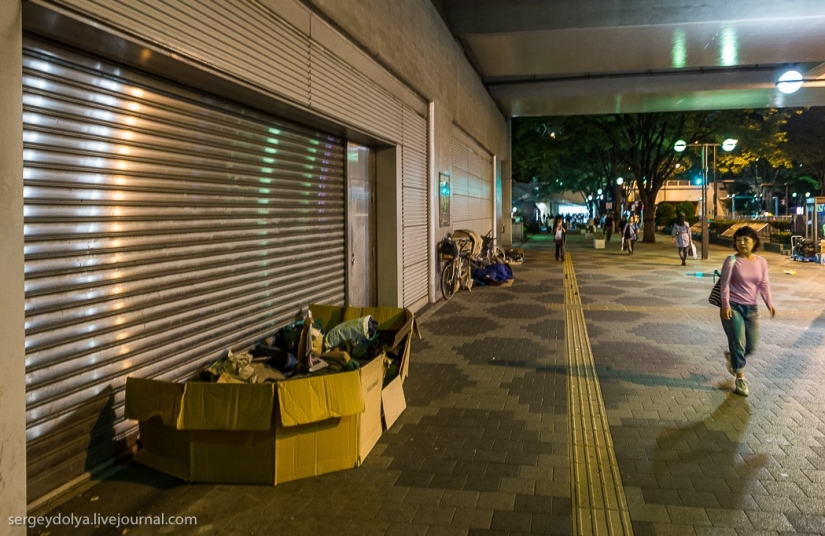
45. Someone asked in the comments to take a picture of a Japanese bum - well, admire it.
A few more facts about Japan that surprised me in one way or another:
- Smoking on the street is prohibited, it is possible only in special hermetic smoking rooms. However, smoking is allowed in restaurants. Cigarettes are sold in vending machines, in order to buy them, you need to have a special card. In fact, all smokers in the country are registered.
Gambling is prohibited in Tokyo. Get out of the situation as follows: arrange a game of balls, such as pinball. You buy a bucket of balls (tokens), and if you win a few more buckets on top, then you will be given a special plaque as a keepsake of the win. You can go to a neighboring building and sell it at a special rate and get money. Thus, the ban is bypassed.
— In Japan, I have not seen multi-layered toilet paper. Everywhere, even in expensive hotels, thin and transparent.
Keywords: Disappointment | Tokyo | Japan
Post News ArticleRecent articles

It's high time to admit that this whole hipster idea has gone too far. The concept has become so popular that even restaurants have ...

There is a perception that people only use 10% of their brain potential. But the heroes of our review, apparently, found a way to ...
Related articles

Yuuki Morita is a promising young sculptor and artist from Japan. The source of inspiration for him was nature, its diversity and ...

Beautiful decoration of dishes is no less important than its taste. People first "eat" with their eyes, and only then try what is ...

Japanese artist gives zest to the ancient engravings in the style of Ukiyo‑e, he turns the traditional Japanese illustrations ...

New Year's is a time to surprise and delight loved ones not only with gifts but also with a unique presentation of the holiday ...